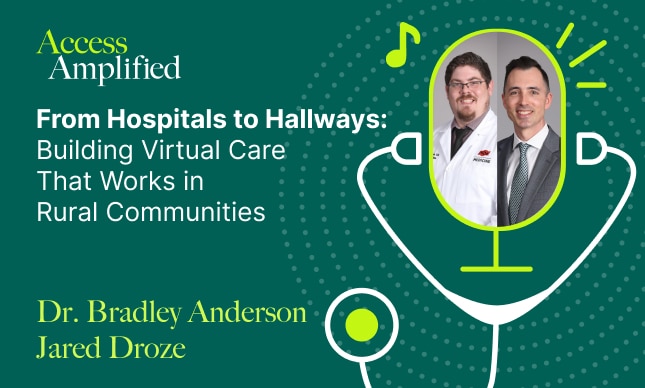From Episodic to Everyday: Making Virtual Care a Habit, Not a Handoff

For too long, healthcare has been something we access only when we absolutely have to – when our kid spikes a fever in the middle of the night, when our allergies flare up again, when that weird cough won’t go away. But this “episodic” model of care misses a critical opportunity: helping people stay healthier by supporting them every day, not just when they’re already sick.
Now, virtual care is flipping that script. By making care available anytime, from anywhere, we’re starting to build something better: a healthcare experience that’s continuous, connected, and part of daily life.
Why Episodic Care Isn’t Enough
Episodic care works like a patch. It helps in the moment, but it doesn’t address the full picture of a person’s health. Patients bounce between urgent care, ERs, and delayed primary care visits. They manage symptoms instead of preventing them. And they often fall through the cracks of a fragmented system.
By contrast, virtual care offers a powerful opportunity to build continuous virtual care that’s embedded into daily life, accessible anytime, and designed to create long-term habits that stick.
Virtual Care That Works for Everyday Life
Think of today’s telehealth services not as one-off video calls, but as ongoing relationships. With solutions like TytoCare’s Home Smart Clinic, families can connect with trusted providers 24/7. They can perform guided exams from home. And they can get answers fast, without the chaos of scheduling, commuting, or waiting rooms.
This kind of continuous virtual care isn’t just about convenience. It’s about creating a new standard for how we stay well.
When care is this easy to access, people use it. In fact, families using TytoCare have increased their primary care usage by 24.1% and reduced unnecessary urgent care visits by 11.3%. Because when the clinic is in your pocket, it’s easier to build healthy habits.
From Tracking to Action: Making Data Work for Health
We’re also living in an era of connected devices. From the Oura Ring to Apple Health, millions of us are already tracking our sleep, heart rate, temperature, and more. But what if all that data could do more than just live in an app?
That’s where predictive healthcare comes in.
By feeding real-time trends into a virtual care platform, we can start spotting issues before they escalate. Imagine catching early signs of an asthma flare-up. Or noticing changes in heart rate patterns that suggest it’s time to check in with your doctor. With tools like the Tyto device, these insights aren’t just possible, they’re actionable. Providers can evaluate high-quality exam data and make informed decisions faster, keeping patients on track and out of the ER.
Making Behavior Change Stick
Shifting from episodic care to continuous care isn’t just about tools. It’s about behavior change.
Traditional telehealth has struggled with low usage, even when it’s offered for free. Why? Because it hasn’t always felt reliable. It’s lacked the clinical quality or ease-of-use that makes people trust it.
That’s why smart design matters. When virtual care feels just as thorough as an in-person exam, when it’s available any time, from anywhere, it becomes something people actually use. Over and over again.
At TytoCare, we’ve seen this play out: the easier it is to access care, the more people do. And the more they do, the healthier they stay.
The Future of Everyday Care
We don’t need more episodic fixes. We need healthcare that works like a habit: ongoing, responsive, and ready when we are.
Virtual care is no longer a backup plan. It’s becoming the foundation of how families manage their health. And with innovations in telehealth services, integrated devices, and predictive healthcare, the opportunity is clear: bring care into the rhythm of everyday life.
It’s time to stop thinking of virtual care as a handoff and start seeing it as a habit worth keeping.





